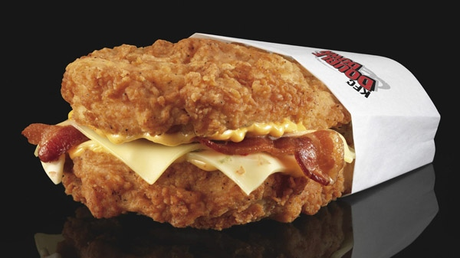 There was a giant explosion, and people died.
There was a giant explosion, and people died. The control room was blanketed in deafening silence, followed immediately by a deafening roar of voices. Alarms. Radios. Static. Percussive, Repetitive, Relentless. There were equal parts confusion and disbelief.
It seemed impossible.
It was impossible.
But it happened anyway.This is not the opening to Andy Weir's new novel. This is January 28, 1986. The day the American space shuttle Challenger exploded 73 seconds after takeoff and sent 7 astronauts - 1 of them a schoolteacher - to their deaths.
Could it have been avoided? Yes, without question.
The people involved made a mistake. It's the same mistake made every day by thousands of professionals. Maybe millions.
Is your boss making this mistake? Your clients? Your Employees? Are you?=======================
We rely on data. Now, more than ever, we do, or at least, we claim to. We love it. Our culture reveres it.
We expect the data to make the decision for us. Automated manufacturing. Self driving cars. Self-optimizing code, running on self-monitoring hardware.
We want data to set us free. We want data to free us from the burden of making a decision.
But data is meaningless without understanding. (Tweet This.)
And understanding is the most basic element of making the best decision (or at least, a good one).
What creates understanding? It's the context around the data. It's transporting the data from the abstract world of numbers and measures to the equally abstract world of feelings and emotions, passion, fear, and hope.
It's the story. The story is what creates understanding. Your data won't tell the story. Only you can. And not telling the story is the best way to fail. (Tweet This.)The NASA engineering team did not tell a story. They buried themselves in data, spreadsheets, numbers.
You can make the numbers say anything you want them to. That's because when you see numbers, you mind doesn't process them the way a computer does. No...it puts a story around them.
When you see numbers, they become a justification for the story...not the other way around.
There is always a story. If no one is telling the story...we make one up that fits our personal bias or desired outcome.
Think about the last report you made. The last presentation you did.
What was the story? Were you the one telling it?
====================
(Thanks to this american life for this next section..)
OK, let's move away from life and death, and into the world of business.
They optimize for one thing: TASTE. (hooray!)One word can make a story. And that word can make millions or billions of dollars.
 nutrition.
nutrition. There's a new thing in fast food now. It's called "Frankenfood" or "Mash Ups." The idea is that in a world that is becoming increasingly obsessed with local, organic, healthy food...fast food companies are uniquely positioned to do the exact opposite.
Example 1: Taco Bell's Doritos Locos taco, which has a Dorito for a shell. I hope whoever had that idea got a raise. Taco Bell has sold more than 450 million of them. (Full Disclosure: they sold 2 of them to me.)
Example 2: KFC's Double Down, which uses fried chicken breasts instead of bread and became an internet meme.
There was NO STORY.There's a third example. At Hardee's / Carl's Jr., the "R&D" team came up with an amazing tasting product: BBQ pulled pork on a burger.
But taste was not enough to sell it. It wasn't enough to tell people it tasted good. " Tastes good" is all the data you would think someone would need to buy the sandwich, right?
In one word: it told the story. And that made people want it.This "data" wasn't enough. It wasn't testing well. Why?
Do people want the things you make? What story do they tell?They were calling it the "BBQ burger" or the "Pulled Pork Burger" or the "Southern Burger.
Then one guy decided to put "Memphis" in front of BBQ.
It's hard.All of a sudden, it was selling great. Memphis meant southern soul. It meant credibility. It evoked feelings of authenticity. It was evocative, yet approachable.
Think about the reports you make. Think about the dashboards you read. Think about the meetings you attend, and the ones you run.
====================
How do you sell your ideas? How do you build support? Get traction?
But it's easy to drown someone in data. I work at a technical company. Data is everywhere.
We are collecting more data about everything we do. Are you wearing a fitbit right now? How much data is your phone sending back to Google or apple servers every day? Every minute?
Here's the thing about data: absolutely no one cares. (Executives, especially, do not care)
To make people care, you need a story.
If you're still on the fence, consider the opinions of people who are smarter than I am:
Still not convinced? Here is one final observation:
Writing was invented maybe 6000 years ago. Maybe it was 4000. Who cares, it was recently (relatively speaking).
How did we pass down knowledge before writing was invented?
Stories.
Oral accounts were the things kept you happy, kept you entertained. They passed down knowledge and kept you ALIVE.
I will postulate: the evolution of our species selected for those people that could best tell and understand stories. If stories were how you learned how to survive...those that were better at understanding them, survived.
Find the story. That's what you should tell. The rest is just details.Embrace this fact.
Of course, collect your data. Curate it. Verify it, get as much as you can. Of course, do that.
But you can't stop there.
See if the data has meaning to you. After you look at it for awhile...maybe it will tell you something, it will give you an insight, it will tell you a story.
